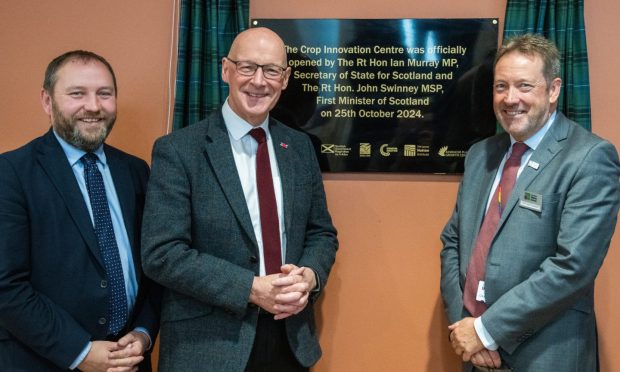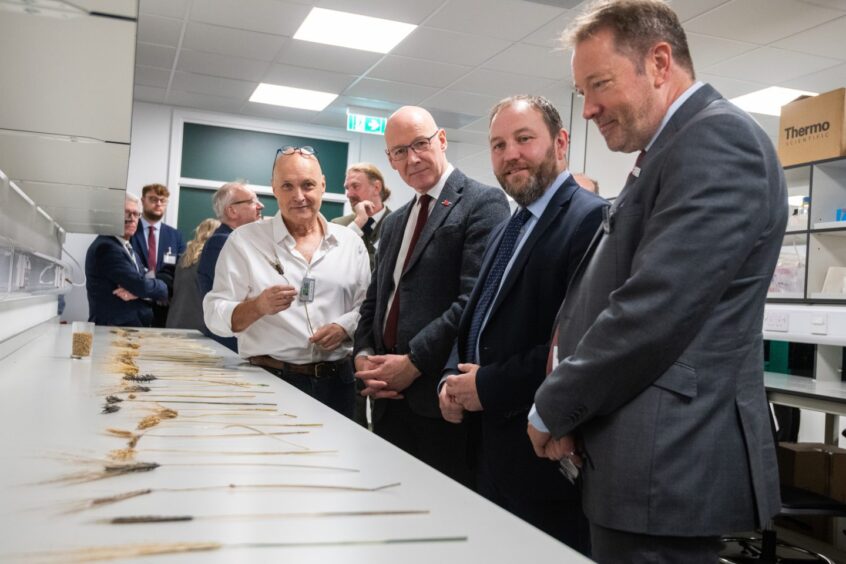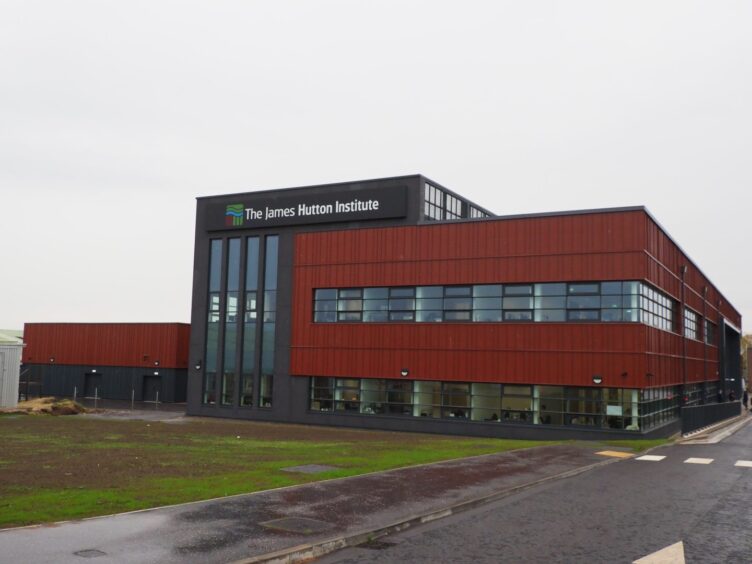A new Crop Innovation Centre (CIC) in Invergowrie, near Dundee, is expected to create nearly 500 new jobs on Tayside.
It will also help secure Scotland’s world-leading reputation in plant science.
The newly opened CIC is home to cutting-edge research aimed at future-proofing crop production, and boosting food and drink security.
It is hoped it will help experts manage natural resources sustainably, and support rural communities in Scotland and around the globe.
Co-operation and collaboration were the watchwords when First Minister John Swinney and Scottish Secretary Ian Murray officially opened the new facilities.
New centre part of £62m investment
The CIC is part of a £62 million investment in new buildings at the James Hutton Institute (JHI)’s Invergowrie site.
Jointly funded by both the UK Government (£45m) and Scottish Government (£17m), the new laboratories are shared by the International Barley Hub (IBH) and Advanced Plant Growth Centre (APGC).
Mr Swinney said the completion of such valuable assets showed what can be achieved when the two governments work together on key projects and priorities.
Mr Murray said the new centre would help encourage economic growth, improve communities and create jobs.
JHI chief executive Colin Campbell said research carried out at the site would also have a focus on collaboration – providing an innovation “hub” for a variety of sectors.
It will also benefit from important input from the farming industry and other key parts of the commercial supply chain, including whisky-makers, Professor Campbell added.
Barley is the predominant crop grown in Scotland – partly due to its key role in the world-renowned Scotch whisky industry, which accounts for 75% of the country’s food and drinks exports.
Invergowrie’s new Crop Innovation Centre will promote scientific discovery
IBH director Robbie Waugh said the barley hub would, therefore, play a key role in ensuring the crop’s future.
Professor Waugh added the IBH would promote scientific discovery and innovation to tackle future challenges, in some cases by using new data from sensors and drones.
George Lawrie, IBH’s chairman and a former farmer, said commercial interests had already been expressed in supporting the facility to breed new varieties with traits suited to the Scottish climate.
Meanwhile, APCG director Derek Stewart said the centre aimed to investigate global food, non-food and pharmaceutical plants, with the aim of “revolutionising” crop production systems.
This would pave the way for the production of local food, 365 days a year, with less environmental impact. Professor Stewart said.
The new centre is home to a molecular phenotyping facility to study the characteristics of crops at a molecular level.
Other valuable research assets include a vertical growth tower, post-harvest storage facility and “next-generation” controlled environments which can replicate current and predicted future global crop production conditions.
Research undertaken in Invergowrie expected to help UK lead rapid growth market
Prof Stewart added: “It will utilise facilities like indoor vertical farms, which use LED lights to mimic optimised outdoor conditions, accelerating the breeding and growing of climate resilient and low input crops.
“This technology will enhance the UK’s capabilities to lead a rapidly expanding market, expected to be worth US $62 billion (about £48 billion) by 2025.”
Crop Innovation Centre expected to deliver £900m economic boost, as well as new jobs
Overall, it is estimated the CIC will work on 940 collaborative industry projects over the next 10 years.
It is expected to support an additional 2,600 jobs in the UK of which 1,760 will be in Scotland and 470 on Tayside. In addition, it is predicted to contribute more than £900m in gross value added to the UK economy, in excess of half of which will be in Scotland.














Conversation